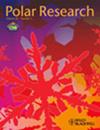管理南极洲的累积影响和保护区:我们能从世界其他地方学到什么?
IF 1.3
4区 地球科学
Q3 ECOLOGY
引用次数: 1
摘要
20多年来,《南极条约》缔约国一直在讨论如何适当管理对该大陆的累积影响。防止累积影响需要流畅的信息交流,以便能够适当、及时地评估和应对由多个利益攸关方开展并由不同缔约方监督的多项活动产生的影响。这对南极特别保护区的有效管理是一个特别的挑战,因为缺乏协调可能会危及其保护目标的实现。在这里,我们建议,将从其他地方的保护区管理中吸取的经验教训结合起来,可能会提高ASPA的有效性,并为如何更好地管理非洲大陆其他地区的累积影响提供宝贵的经验和见解。纳入南极洲环境管理工具箱的关键概念包括:(1)适应性管理的概念,这是其他地方保护区管理有效性的基石;(2)授权保护区管理人员的必要性,这是确保当地遵守管理计划、协调现场活动、,促进信息交流、促进合作和管理冲突。本文章由计算机程序翻译,如有差异,请以英文原文为准。
Managing cumulative impacts and protected areas in Antarctica: what can we learn from the rest of the world?
For more than 20 years Antarctic Treaty Parties have been discussing how to appropriately manage cumulative impacts in the continent. Preventing cumulative impacts requires the fluent exchange of information to enable proper and timely assessment of, and response to, the impacts that result from multiple activities, undertaken by multiple stakeholders and supervised by different Parties. This is a particular challenge for the effective management of Antarctic Specially Protected Areas (ASPAs), as a lack of coordination may potentially put at risk the fulfillment of their conservation objectives. Here we suggest that incorporating lessons learnt from protected areas management elsewhere might improve the effectiveness of ASPAs and provide valuable experiences and insights on how to better manage cumulative impacts in the rest of the continent. Key concepts to incorporate in Antarctica’s environmental management toolbox include (1) the notion of adaptive management, which is a cornerstone of protected areas management effectiveness elsewhere, and (2) the need of empowering protected area managers, which are a key (but often missing) element to ensure local compliance with management plans, co-ordinate on site activities, facilitate exchange of information, promote cooperation and manage conflicts.
求助全文
通过发布文献求助,成功后即可免费获取论文全文。
去求助
来源期刊

Polar Research
地学-地球科学综合
CiteScore
3.20
自引率
5.30%
发文量
22
审稿时长
>12 weeks
期刊介绍:
Since 1982, Polar Research has been the international, peer-reviewed journal of the Norwegian Polar Institute, Norway''s central institution for research, environmental monitoring and mapping of the polar regions. Aiming to promote the exchange of scientific knowledge about the Arctic and Antarctic across disciplinary boundaries, Polar Research serves an international community of researchers and managers. As an open-access journal, Polar Research makes its contents freely available to the general public.
Original primary research papers comprise the mainstay of Polar Research. Review articles, brief research notes, letters to the editor and book reviews are also included. Special issues are published from time to time.
The scope of Polar Research encompasses research in all scientific disciplines relevant to the polar regions. These include, but are not limited to, the subfields of biology, ecology, geology, oceanography, glaciology and atmospheric science. Submissions from the social sciences and those focusing on polar management and policy issues are welcome. Contributions about Antarctica are particularly encouraged.
 求助内容:
求助内容: 应助结果提醒方式:
应助结果提醒方式:


